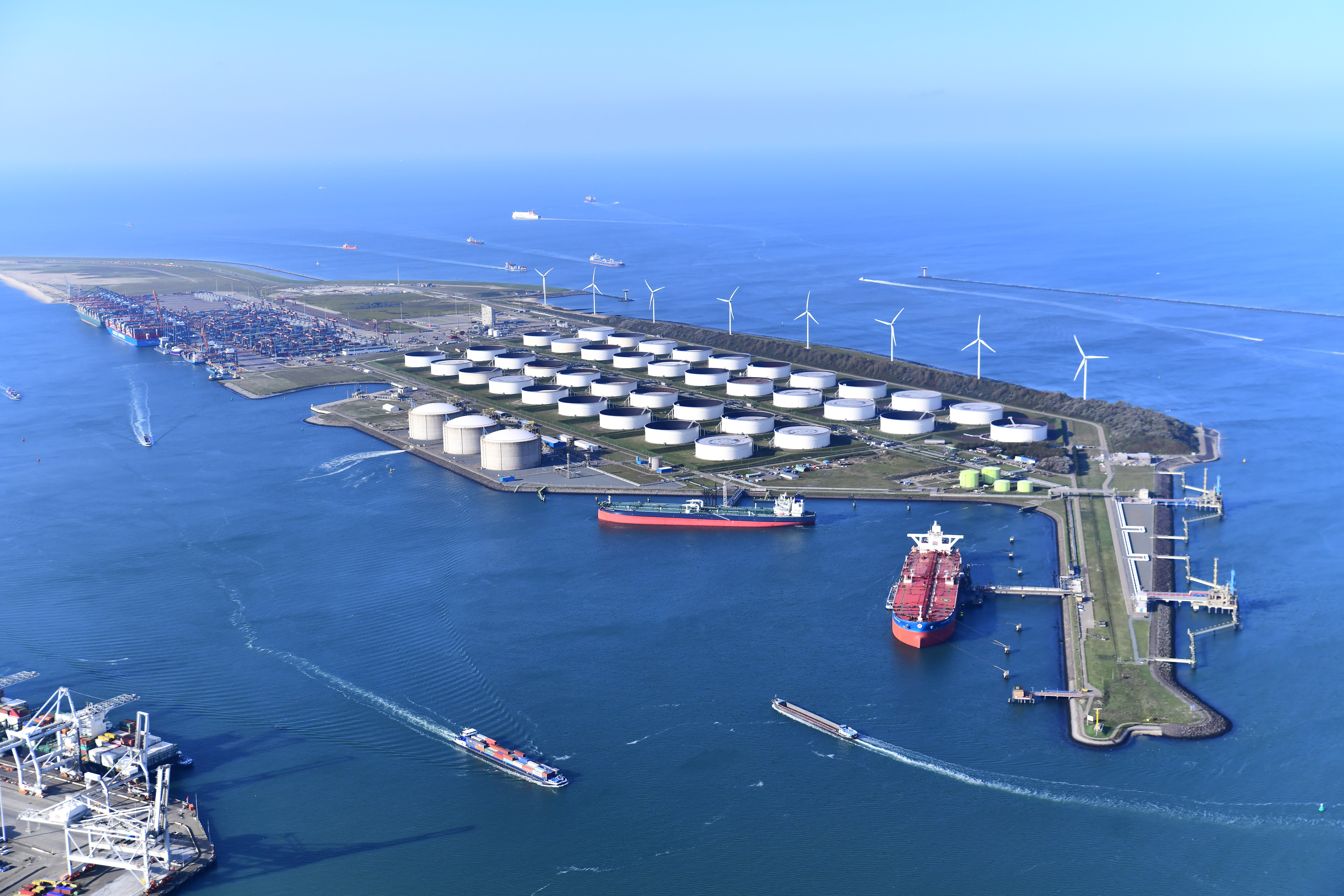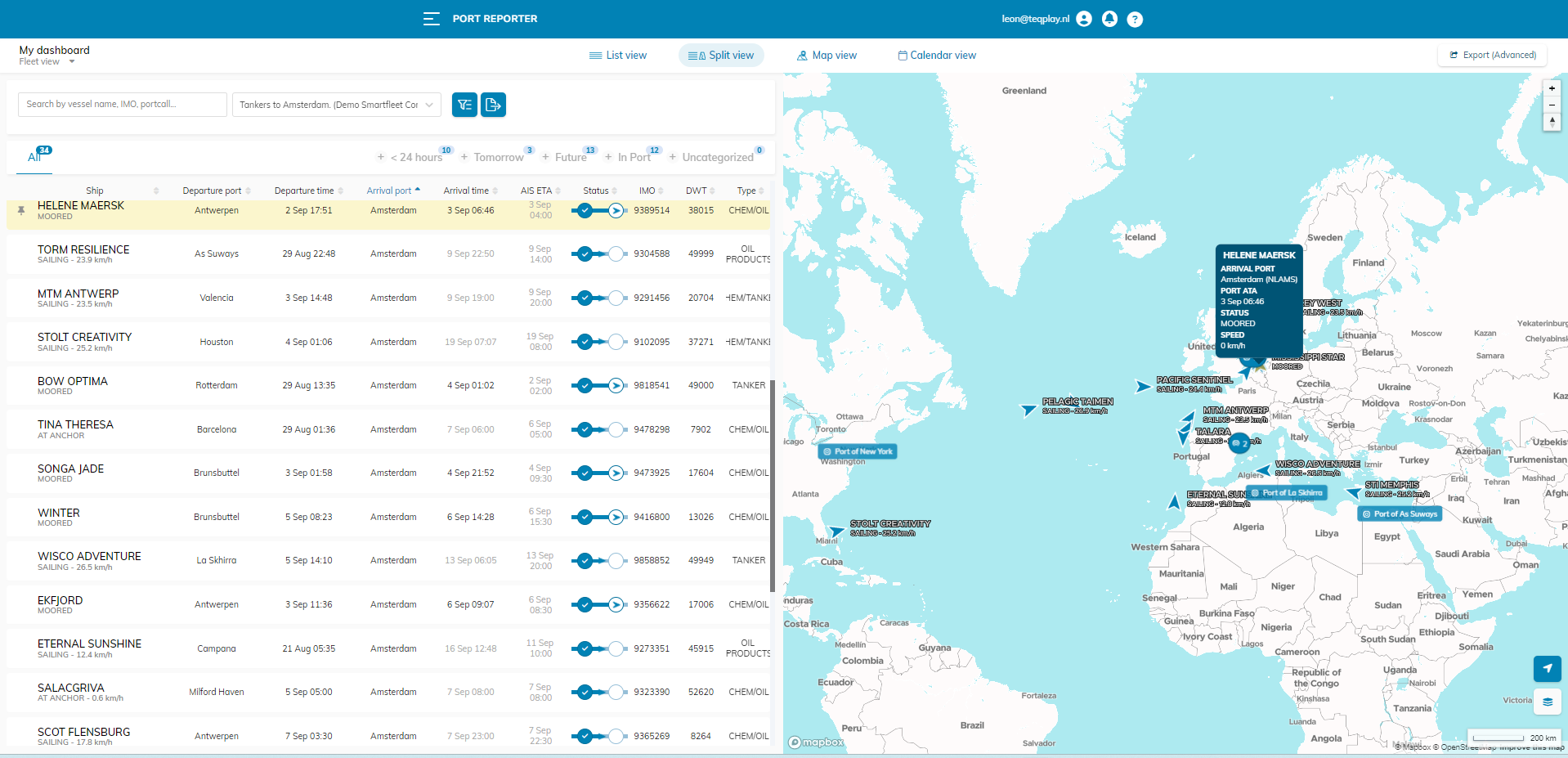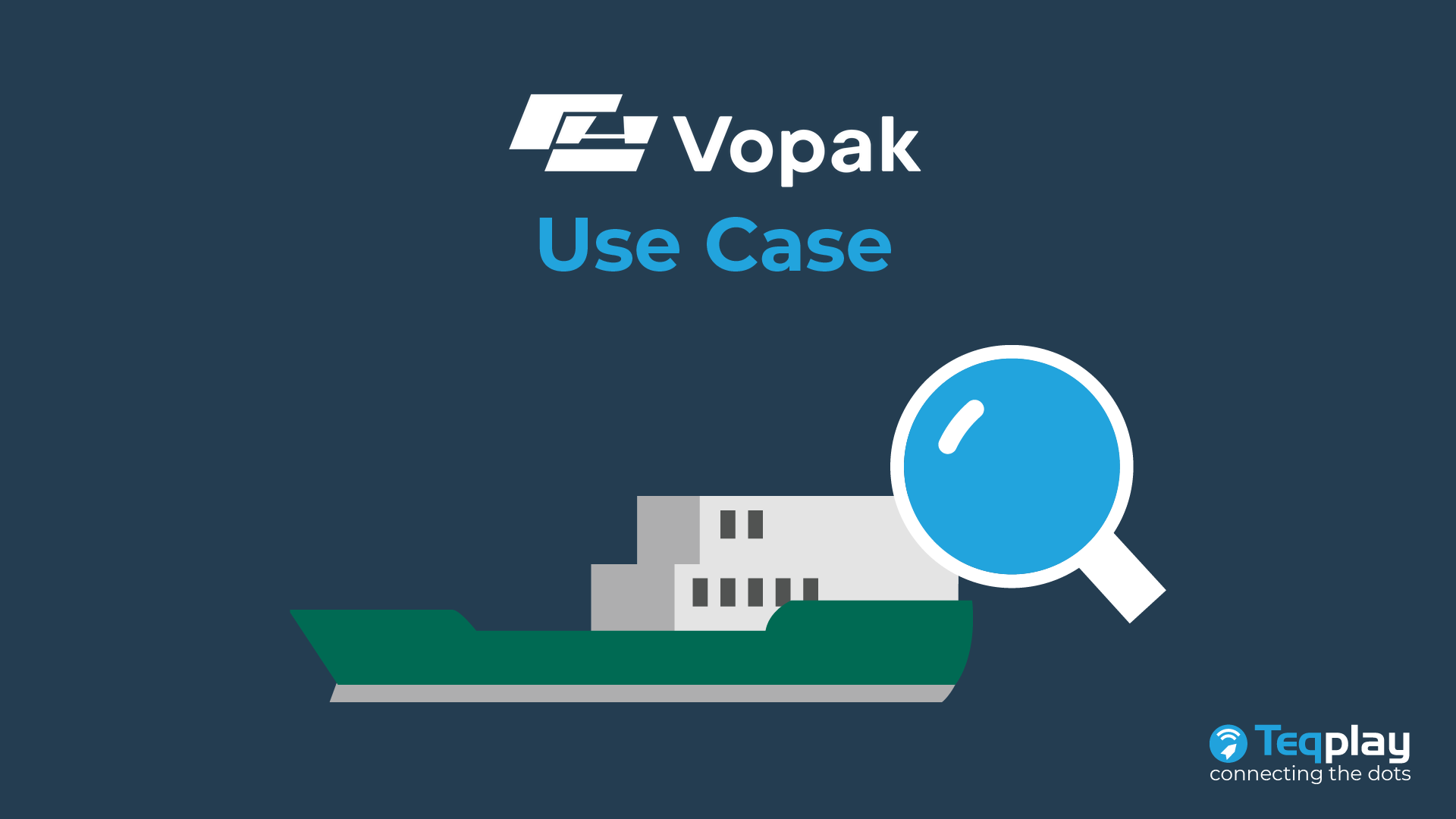I. Introduction
About Teqplay and Vopak
Teqplay’s ambition is “driving change and fostering collaboration by exposing and eliminating waste and risk in the global supply chain”. We do this by combining technology, data, and domain knowledge. Vopak is our valuable partner in this journey toward a better future for the industry. Together with Vopak’s rich experience in maritime digitalization and Teqplay’s passion for innovation, this use case demonstrates our collaborative efforts, the challenges we faced, and the promising future ahead.
Importance of digitalization in the maritime industry
Digitalization is rapidly transforming the maritime industry, bringing new efficiencies, reducing costs, and enhancing safety. At the moment, maritime operations are facing many unnecessary bottlenecks due to unoptimized data processing and coordination. This makes investment into maritime digital transformation more important than ever.
Digital technologies such as the Internet of Things (IoT), artificial intelligence (AI), and blockchain enable better monitoring of vessels and cargo, improve navigation, and streamline port operations. Whether you are an operator, port authority, agent, or any other maritime actor, it is important to understand the significance of digitalization in the industry in this day and age.
Digitalization also plays a critical role in enhancing the sustainability of the maritime industry. By improving operational efficiency, reducing fuel consumption, and optimizing routing, digital technologies have helped reduce the carbon footprint of the industry. With the current alarming emission level and stricter regulations, maritime businesses will need to adapt accordingly.
Purpose of the use case
Through this use case, Teqplay demonstrates the challenges and opportunities of the digital journey in the maritime industry. With our partner Vopak, Teqplay also proves not only the theory but the reality of applying innovative technologies in the industry.
II. Background
Challenges faced by the maritime industry
The maritime supply chain is a critical part of global trade. However, the current supply chain is often considered old-fashioned and inefficient, leading to for instance significant demurrage costs which can be up to $150 billion per year.
Demurrage costs are incurred when cargo is held at a port or terminal beyond the agreed-upon time. This can happen when ships are delayed due to poor weather conditions, labor strikes, or other unforeseen circumstances. When cargo is delayed, it can cause a ripple effect throughout the supply chain, leading to additional costs and lost revenues for many stakeholders involved. There are many challenges faced by the maritime industry which are causing inefficiencies:
1. Lack of transparency and communication between stakeholders
Even for those involved in the maritime supply chain process, such as charterers, shipowners or agents, there is still a lack of awareness of what is happening and the hidden costs that could incur throughout a voyage and port call. The lack of transparency and efficient communication among stakeholders prevents them from being proactive when it comes to disruptions and delays. This makes it difficult for charterers and port authorities to keep track of the big picture and increases the risk of demurrage.
2. Outdated technology and processes
Despite the rising importance of digital transformation, a significant part of the maritime world is still relying on outdated methods such as Excel sheets or paper documents. The maritime industry is constantly growing and changing, in order to keep up with increase in demands and stricter regulations, industry leaders need to adapt and be proactive in decision making as well as change management.
Compared to other industries and sectors, the maritime industry’s adoption of digitalization is happening later and slower. There is a common sentiment that there is no need to update the processes because things have always worked, and if it isn’t broken, why fix it?
However, not only would outdated technology eventually become incapable of keeping up with changes within the industry, continuing to rely on them goes against the idea of optimization and operational excellence in the supply chain.
3. The complexity of the supply chain
There are many parties involved in the various processes of the maritime supply chain. Ship owners, charterers, agents, port authorities,… all have their own agenda and responsibilities which may overlap and interconnect. Every step in the chain affects the next one, and every party has influence over other stakeholders. This means that decision makers need to have a comprehensive view of events if they want to ensure optimization of operations. With how complex the processes can be, the risk of one delay causing more delays is high.
Digitalization is a necessary investment
“Every company is a software company.” – Leo Brand, CIO of Vopak.
Before Vopak decided to embrace digital transformation, even those within the company found it hard to believe that Vopak would become a software company. However this started to change as Vopak developed software, captured information, and built a digital platform for knowledge. These initiatives enable Vopak to operate and deliver services in real-time, differentiate from competitors, as well as adapt to new energy developments with much more ease.
Vopak understands the value of innovation. By leveraging the company’s extensive experience in the maritime sector and combining it with a mindset that isn’t afraid of change, Vopak succeeded in positioning and adapting in this ever growing and changing industry.
In terms of direction and mindset, Teqplay is very much in line with Vopak. We believe that digital development is inevitable for the maritime world, and it is up to industry leaders to step up and take advantage of this transformation. In order to successfully invest in digitalization, maritime stakeholders will need to pay attention to a number of factors:
1. The leadership team needs to have digital literacy and understanding of technology
Investment into digital transformation is not a one-off decision. It requires long-term commitment from industry leaders, which means a comprehensive understanding of what technology can achieve and how it is a necessity for decision makers.
2. Affordability is essential to investment in digital transformation
The point of adopting digital solutions is to reduce waste for the maritime supply chain, in both time and cost. It is necessary to phase out old, inefficient applications, and at the same time, phase in new developments. A good change management strategy is crucial in keeping the innovation process running without incurring even more costs.
3. Having the skills and capability to make it happen is also crucial
Vopak built their own software, which was not a common approach at the time. This required specific capabilities within the company, such as developers, agile scrummers, and solution architects. This demonstrates their ability to invest in the right people and skills to make digital transformation happen. Vopak is now taking the opportunity to commercialize the software they have developed, which they believe will bring more value to the maritime sector.
III. Collaboration with Vopak
Overview of Teqplay's partnership with Vopak
1. Improve the supply chain by using data in real-time
As partners, Vopak and Teqplay both believe in the power of real-time data. Together with the creation of a shared point of truth for all stakeholders involved, we aim to provide a consistent client experience worldwide and ultimately improve the global supply chain.
2. Utilization of key data points
By leveraging data on vessel movements and other relevant assets, Vopak and Teqplay’s solutions create accurate predictions and improve operational efficiency, ultimately leading to better customer service for our clients.
3. Trust in data
Collaboration is also a crucial aspect of the industry, and Teqplay understands that trust in data is paramount to achieving successful cooperation. Through API technologies and other methods, Vopak and Teqplay help establish trusted exchanges of information that are properly handled and would not be distributed without consent. This trust in data enables better collaboration and leads to improved business models, invoicing processes, and ownership transfers.
Our joint initiative
In Houston, Vopak and Teqplay partnered together to co-develop an innovative application that brings data together and provides supply chain visibility to our customers. The results were truly remarkable, as two of our customers discovered savings of 4 to 5 million US dollars in each port when we tested the application.
Imagine the potential impact when scaled up for a large customer who has, as an example, 40 ports in operation in various locations. The bottom line improvement is significant, and Teqplay played a key role in making it happen with a fast and agile approach.
Learning
When it comes to making technology work, context is crucial. As we started our digitalization efforts, many suggested that we should begin in a small port. However, we believed that starting in a larger port, such as Rotterdam where we are based and living, made more sense.
From a learning perspective, we wanted to approach our venture with a global mindset, aligning ourselves in a way that would be applicable on a global scale. After all, both Tepqlay and Vopak, being global industry players, face global challenges. While ports and terminals may vary in their specifics, the core processes remain the same. It is from this core that efficiency gains can be achieved.
Impact
Improving financial performance is only one aspect of the benefits of digital transformation. Bringing balance to the everchanging maritime industry is what we ultimately aim to achieve.
Sustainability and digitalization go hand-in-hand with one another. With the right use of data insight, the industry can remain balanced in the face of demands for sustainability, the introduction of new energy solutions, and the increasing regulations concerning emission and GHG.

Léon Gommans | CEO/Co Founder of Teqplay
A serial entrepreneur who’s passionate about #innovation, #technology, #collaboration, and of course, #maritime. The mission is: to connect the dots & to get it to work, together with the industry!
- +31 (0)6 55306660
- leon@teqplay.com
- Léon Gommans







